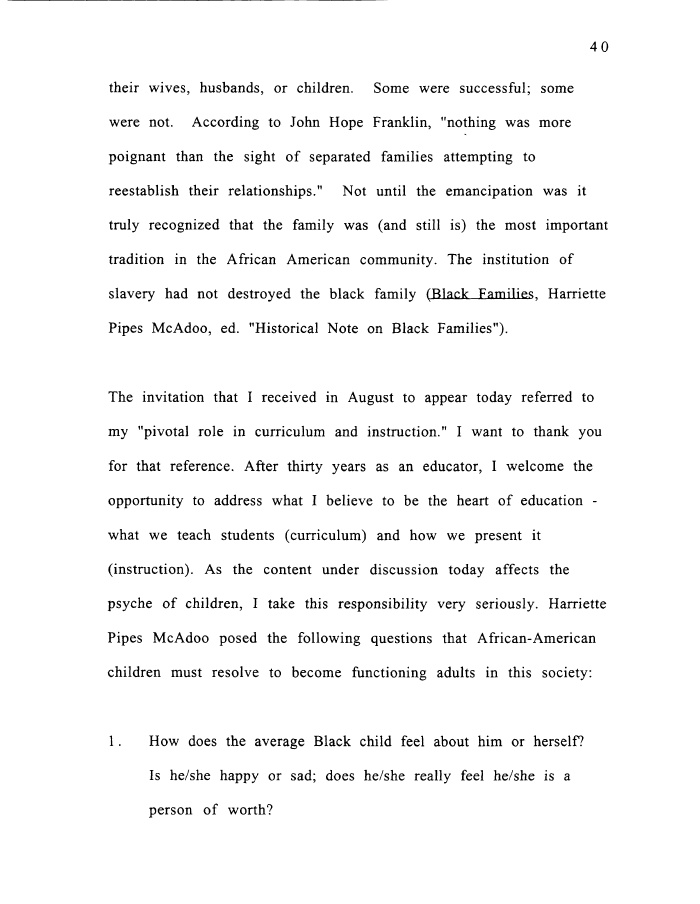 |
||||
|
TASK FORCE TO STUDY THE HISTORY AND LEGACY OF SLAVERY IN MARYLAND (Final Report) 1999/12/31 MdHR 991422 MdHR 991422, Image No: 49 Print image (40K) |
 |
||||
|
TASK FORCE TO STUDY THE HISTORY AND LEGACY OF SLAVERY IN MARYLAND (Final Report) 1999/12/31 MdHR 991422 MdHR 991422, Image No: 49 Print image (40K) |
| 40 their wives, husbands, or children. Some were successful; some were not. According to John Hope Franklin, "nothing was more poignant than the sight of separated families attempting to reestablish their relationships." Not until the emancipation was it truly recognized that the family was (and still is) the most important tradition in the African American community. The institution of slavery had not destroyed the black family (Black Families^ Harriette Pipes McAdoo, ed. "Historical Note on Black Families"). The invitation that I received in August to appear today referred to my "pivotal role in curriculum and instruction." I want to thank you for that reference. After thirty years as an educator, I welcome the opportunity to address what I believe to be the heart of education -what we teach students (curriculum) and how we present it (instruction). As the content under discussion today affects the psyche of children, I take this responsibility very seriously. Harriette Pipes McAdoo posed the following questions that African-American children must resolve to become functioning adults in this society: 1. How does the average Black child feel about him or herself? Is he/she happy or sad; does he/she really feel he/she is a person of worth? |